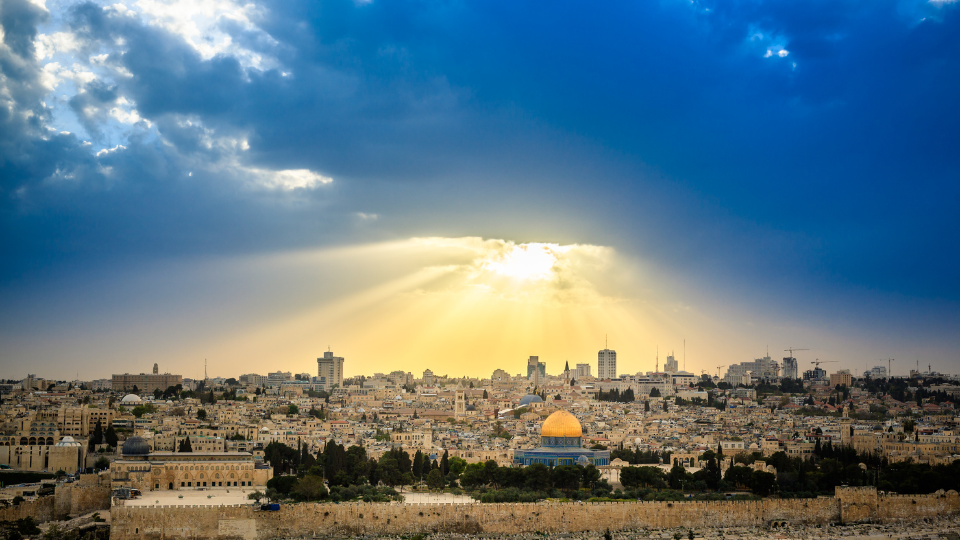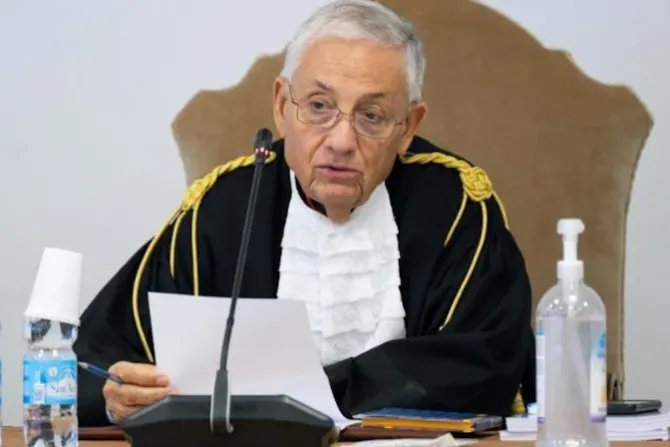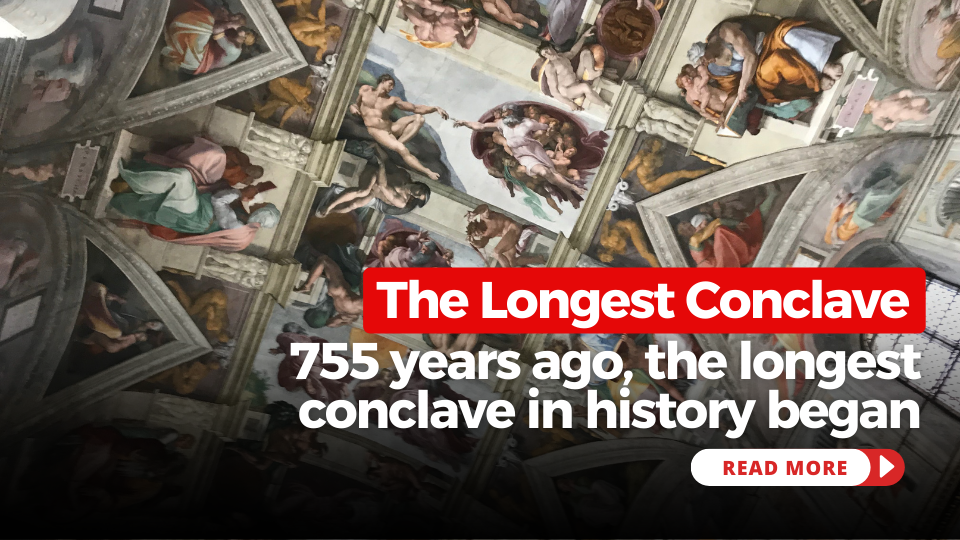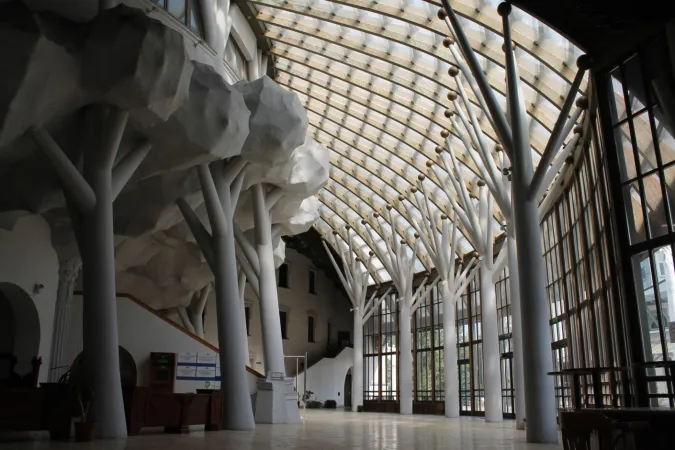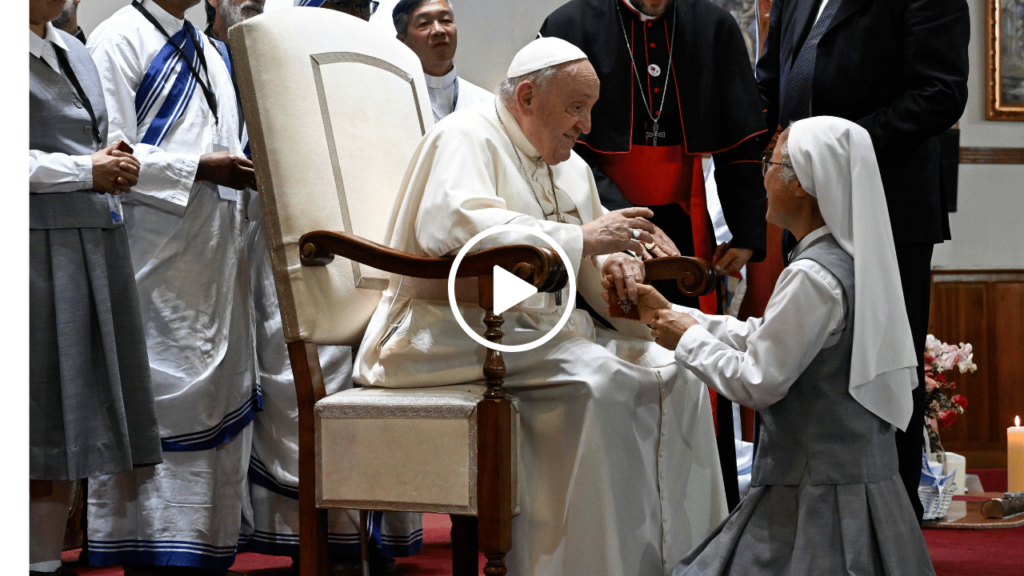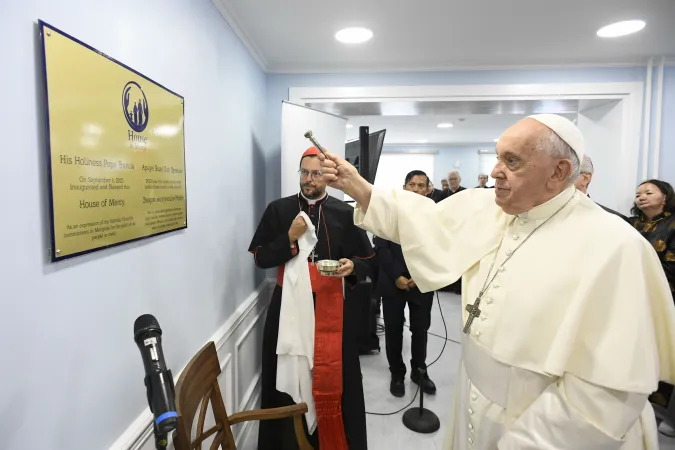Israelis and Palestinians are “two peoples who must live together. With that wise solution: two peoples, two states. The Oslo Accords: two clearly delineated states and Jerusalem with a special status.” Pope Francis reiterated this only a few days ago in the interview given to TG1, effectively confirming the Vatican line on the Holy Land since the founding of the State of Israel in 1948 when Pope Pius XII reigned.
Pius XII
In the encyclical In multiplicibus curis of 1948, Pius XII relaunched the international character of the Holy City of Jerusalem: “We are full of faith that these prayers and these hopes, an indication of the value that the Holy Places have for so great a part of the human family, will strengthen the conviction in the high quarters in which the problems of peace are discussed that it would be opportune to give Jerusalem and its outskirts, where are found so many and such precious memories of the life and death of the Savior, an international character which, in the present circumstances, seems to offer a better guarantee for the protection of the sanctuaries. It would also be necessary to assure, with international guarantees, both free access to Holy Places scattered throughout Palestine and the freedom of worship and the respect of customs and religious traditions.”
The following year — 1949 — in the encyclical Redemptoris nostris — Pius XII once again asked everyone to “use every legitimate means to persuade the rulers of nations, and those whose duty it is to settle this important question, to accord to Jerusalem and its surroundings a juridical status whose stability under the present circumstances can only be adequately assured by a united effort of nations that love peace and respect the right of others. Besides, it is of the utmost importance that due immunity and protection be guaranteed to all the Holy Places of Palestine, not only in Jerusalem but also in the other cities and villages as well.”
Paul VI
On the eve of the Six-Day War of 1967, Paul VI wrote a message to the UN Secretary-General U Thant on 5 June: “We are deeply saddened and concerned by the developments of events in the Middle East, and while we pray that divine mercy may preserve that area and the world from suffering and destruction We ask you to make every effort to ensure that the United Nations can stop the conflict. We express in the name of Christianity the fervent hope that in the unfortunate event, which we firmly trust will never occur that the situation worsens, Jerusalem can, due to its peculiarly sacred and holy character, be declared an open and inviolable city.” And two days later in the general audience he repeated the appeal for “the safekeeping of the Holy Places; indeed, it is of great interest for all the descendants of the spiritual lineage of Abraham, Jews, Muslims, and Christians that Jerusalem be declared an open city, and, cleared of all military operations remain immune from the causalities of war, which already affect it and still more easily threaten it. We make an imploring appeal in the name of all Christendom for this trepidation, and rather, We make ourselves for this purpose the interpreters of all civilized humanity to the Rulers of the Nations in conflict and to the Military Chiefs of the fighting armies: may Jerusalem be spared the regime of war, and may the holy city remain a refuge for the defenseless and the wounded, a symbol of hope and peace for all.”
John Paul II
In 1984, with the Apostolic Letter Redemptionis anno, John Paul II also returned to the question of Jerusalem and the Holy Land, reiterating the line of the Holy See. “The Roman pontiffs, especially in this century, have always followed with trepidatious solicitude the painful events in which Jerusalem has been involved for many decades and have paid vigilant attention to the pronouncements of international institutions concerned with the Holy City. On numerous occasions, the Holy See has called for reflection and urged an appropriate solution to the complex and delicate issue. It has done so because it is deeply concerned about peace among peoples, no less than for spiritual, historical, cultural, and eminently religious reasons. All mankind, and in the first place, the peoples and nations who have in Jerusalem their brothers and sisters in faith, Christians, Jews, and Muslims, have reason to feel concerned and to do their utmost to preserve the sacred, unique, and unrepeatable character of the city. Not only the monuments or holy places but the whole of historic Jerusalem and the existence of the religious communities, their condition, and their future cannot fail to be the object of interest and solicitude on the part of all. Indeed, it is incumbent that a concrete and just way be found, with goodwill and foresight, by which the various interests and aspirations are composed in a harmonious and stable form and are adequately and effectively protected by a special internationally guaranteed status so that one party or the other cannot put it back into question. I also feel the pressing duty before the Christian communities, those who profess faith in the one God and who are committed to the defense of fundamental human values, to repeat that the question of Jerusalem is fundamental for just peace in the Middle East. It is my belief that the religious identity of the city and, in particular, the common tradition of monotheistic faith can pave the way for promoting harmony among all those who variously feel the Holy City as their own.”
John Paul II then addressed the question of “two peoples and two states.” The Pope wrote, “It is natural, in this context, to remember that in the region, two peoples, the Israeli and the Palestinian, have been opposed for decades in an antagonism that appears irreducible. The Church, which looks to Christ the Redeemer and sees his image in the face of every man, calls for peace and reconciliation for the people of the land that belonged to her. For the Jewish people who live in the State of Israel and who in that land preserve such precious testimonies of their history and their faith, we must invoke the desired security and the right tranquility, which is the prerogative of every nation and condition of life and progress for every society. The Palestinian people, who have their historical roots in that land and have lived dispersed for decades, have the natural right to justice, to find a homeland, and to be able to live in peace and tranquility with the other peoples of the region.”
Benedict XVI
Upon his arrival in Israel in May 2009, Benedict XVI confirmed the line expressed by his predecessor. “During my stay in Jerusalem, I will have the pleasure of meeting many of this country’s distinguished religious leaders. One thing that the three great monotheistic religions have in common is a special veneration for that holy city. It is my earnest hope that all pilgrims to the holy places will be able to access them freely and without restraint, to take part in religious ceremonies, and to promote the worthy upkeep of places of worship on sacred sites. Even though the name Jerusalem means ‘city of peace,’ it is all too evident that, for decades, peace has tragically eluded the inhabitants of this holy land. The eyes of the world are upon the peoples of this region as they struggle to achieve a just and lasting solution to conflicts that have caused so much suffering. The hopes of countless men, women, and children for a more secure and stable future depend on the outcome of negotiations for peace between Israelis and Palestinians. In union with people of goodwill everywhere, I plead with all those responsible for exploring every possible avenue in the search for a just resolution of the outstanding difficulties so that both peoples may live in peace in a homeland of their own, within secure and internationally recognized borders.”

